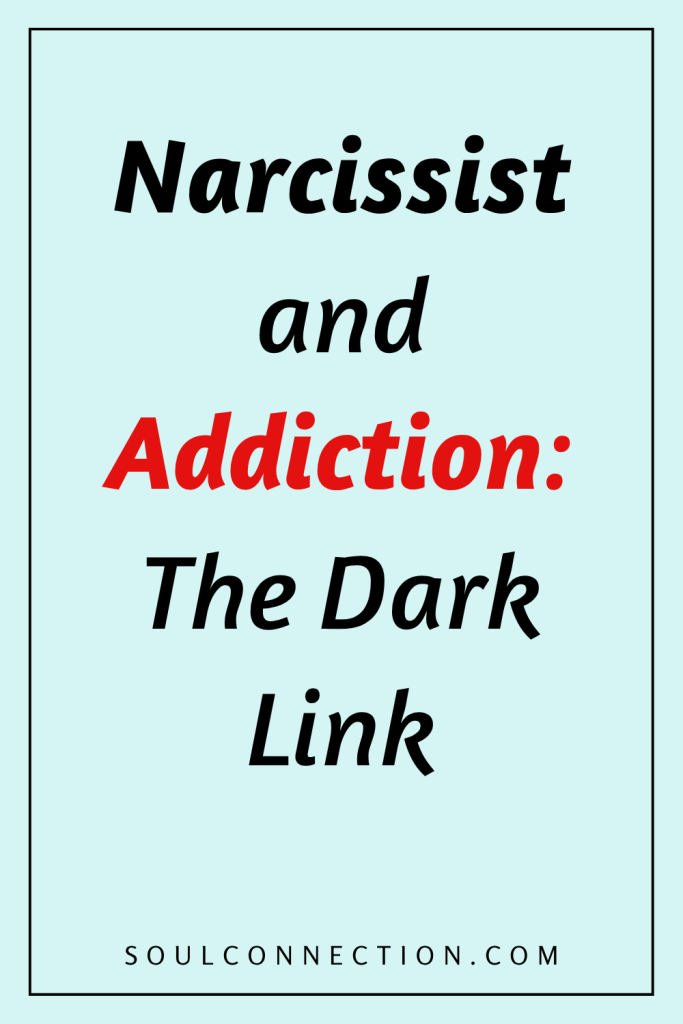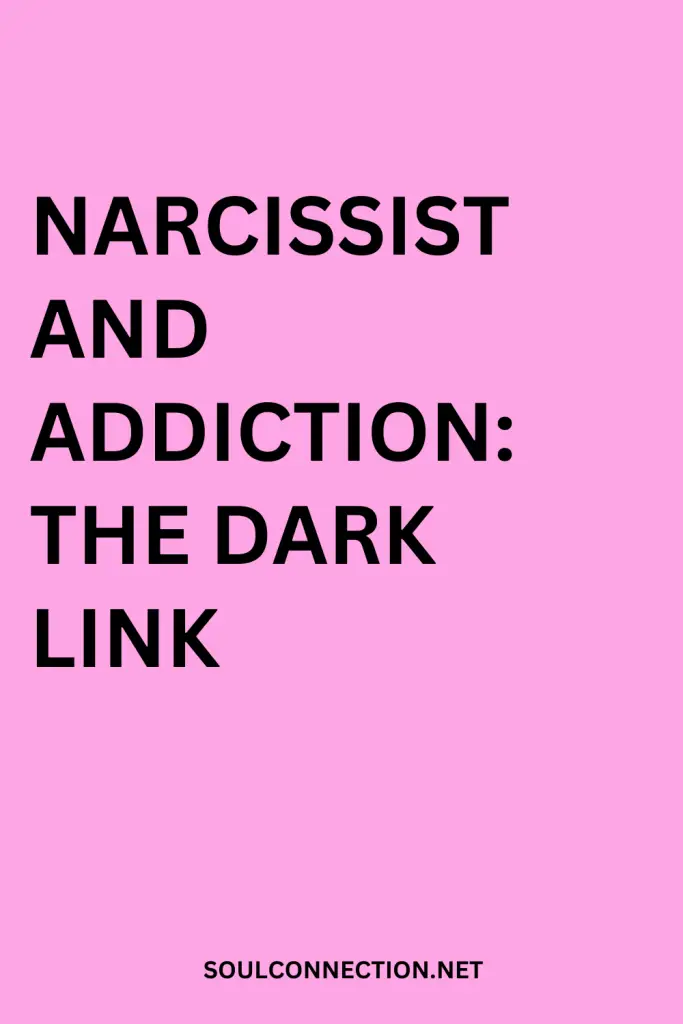Ever met someone who could charm the socks off a statue, couldn’t handle criticism if their life depended on it, and seemed to have quite the love affair with themselves—and maybe also with alcohol, painkillers, or online shopping? Grab a seat.
This is about why narcissism and addiction are like peanut butter and jelly, if PB&J gave you a headache and threatened to eat your soul.
When Self-Love Turns Self-Destructive
Narcissism isn’t just garden-variety confidence or loving your own selfie. It’s a personality trait (and, for some, a full-blown disorder) built on unshakable self-importance, a craving for admiration, and a grand aversion to criticism.
On the outside, it can look glamorous or powerful. Underneath? It’s more fragile than a teacup at a toddler’s birthday.
Now, toss addiction into the mix—a compulsion for substances, gambling, or behaviors that wreck your life faster than a toddler with a permanent marker—and you get a toxic cocktail.
No surprise these two often find each other in the wild.
The Ego That’s Never Satisfied
At the heart of narcissism is a gnawing emptiness. All that grandstanding and strutting isn’t confidence—it’s camouflage. Narcissists need a steady stream of validation just to feel okay.
But reality being what it is, people can’t be relied on to endlessly clap and cheer.
Enter addiction. Substances and behaviors can provide a counterfeit sense of worth, escape, or relief. That glass of wine, those pills, the casino—all deliver a quick hit of “You’re special!” when the world goes quiet.
It’s not hard to see why a narcissist’s vulnerability can become a playground for addiction. When the applause dies down, reaching for a glass or a credit card feels easier than sitting with shame or emptiness.
They’re Not Exactly Fans of Limits
Narcissists and boundaries go together about as well as cats and bathtubs. Accountability? Not their favorite word. Rules? For other people.
The same mindset that says, “I deserve special treatment” doesn’t suddenly vanish when it’s time to put down the bottle or log off the gambling site.
Addiction, by its very nature, thrives in the land of “just one more.”
Combine that with the narcissist’s belief that rules are for everyone else, and you get a recipe for denial, secrecy, and ugly confrontations (“I can quit anytime I want, thank you very much!”).
Blame Shifting and the Art of Not Taking Responsibility
If there were an Olympic sport for ducking responsibility, narcissists would take gold, silver, and bronze. When addiction enters the picture, blame-shifting reaches whole new heights.
Caught with empty bottles? “If work wasn’t so stressful, I wouldn’t need a drink.” Maxed out the credit card? “If you appreciated me more, I wouldn’t have to treat myself.”
The story is always the same: someone else is at fault. This mental gymnastics lets the narcissist avoid the pain of self-reflection, which is about as appealing to them as a cold shower in January.
Emotional Pain: The Uninvited Guest
Beneath the bravado, narcissists are often nursing wounds from early childhood—think neglect, criticism, or the world’s worst parenting. That pain doesn’t just disappear.
Many narcissists carry a sense of worthlessness so deep it would make a therapist’s head spin.
Addiction promises quick relief. Substances or compulsive behaviors numb the ache, even if just for a little while.
The catch? The pain comes roaring back the next morning, now armed with guilt, shame, and maybe a hangover.
How Narcissistic Traits Feed Addiction
It’s not just coincidence these two show up together at the party. Narcissistic traits actively feed addiction’s cycle.
- Entitlement: “I deserve this.” Whether it’s another drink or blowing rent money on a shopping spree, the narcissist’s sense of entitlement fuels impulsivity.
- Lack of Empathy: Narcissists don’t lose much sleep over how their actions affect others. If a loved one is hurt by their addiction, it barely registers—or becomes one more reason to play the victim.
- Grandiosity: “Alcoholics are weak. That’s not me.” Believing they’re immune to the consequences of addiction keeps them stuck.
- Manipulation: “If you really loved me, you’d buy me another bottle.” Guilt-tripping and gaslighting make it hard for loved ones to set healthy boundaries.
The Vicious Cycle: Validation, Shame, and Escape
Here’s how it usually plays out: The narcissist seeks validation. The world, being imperfect, sometimes declines to deliver. This triggers shame and emptiness, which the narcissist can’t tolerate.
Quick fix? Reach for their favorite substance or behavior. Relief is quick—but fleeting. The shame deepens, self-hatred festers, and the need for escape grows… which means more addiction.
Round and round it goes. Like running on a hamster wheel that’s caught fire.
What It Means for Partners, Friends, and Family
If you’re reading this because someone in your life checks both boxes—narcissism and addiction—then you probably already know the special kind of exhaustion it brings.
Boundaries can feel impossible to enforce. Guilt and manipulation run rampant.
It’s easy to start questioning your own reality (hello, gaslighting). The cycle of hope, disappointment, and self-blame is dizzying.
Still, you’re not powerless. Not by a long shot.
Practical Steps for Surviving the Twisted Two-Step
Step one: Detach from the fantasy that love alone will “fix” them. Narcissism and addiction are both stubborn, and together they’re as easy to budge as a sleeping cat.
Setting clear, enforceable boundaries is crucial. This means spelling out what behaviors you won’t tolerate and sticking to it—even if the narcissist throws a world-class tantrum.
Enlist support. Trying to handle this solo is like taking on a hurricane with an umbrella. Find a therapist, support group, or at least a friend who believes you when you describe what’s happening.
Protect your own sanity. The narcissist’s reality-bending logic can leave you doubting your own senses.
Keep a journal, check your recollections with trustworthy people, and remind yourself: you’re not the crazy one.
Can They Ever Change?
Short answer: It’s possible, but don’t hold your breath. Narcissism is notoriously resistant to change, especially since self-reflection is not their strong suit.
Tack on addiction, and you’ve got a double whammy.
Sometimes, rock bottom can trigger a willingness to seek help. Sometimes, the threat of losing something—or someone—important can open a tiny crack in the armor.
Therapy can help, but only if the narcissist actually wants it (not just to appease you or tick a box).
A better bet? Focus on what’s in your control: your boundaries, your choices, your wellbeing.
When Is Enough Really Enough?
Waiting for the narcissist-addict to see the light can turn into a full-time job. If you’re wondering when to walk away, that’s a sign in itself.
Ask: Are you constantly anxious or walking on eggshells? Is your own health—mental or physical—suffering? Has your world shrunk down to managing their crises?
Choosing yourself isn’t selfish. Sometimes the bravest, kindest act is admitting you can’t save someone who refuses to be saved.
Silver Linings and Small Mercies
There’s nothing glamorous about narcissism or addiction. The movies might love a good “tortured genius with a whiskey problem” storyline, but real life is messier—and infinitely more exhausting.
Still, every day you draw a line, say no, or reach out for help, you’re reclaiming a little more space for yourself. It’s not easy. But it is possible.
And even if your glittering, self-obsessed, tequila-toting loved one never gets their act together, you can write your own ending.
Finding Your Way Back to Yourself
Living in the shadow of someone else’s drama can make it easy to forget who you are. Reclaim your hobbies. Call friends you’ve lost touch with. Go for a walk without worrying who’s texting.
Healing from the fallout of narcissism and addiction takes time. It might need therapy, new routines, or just a break from all the chaos.
The point isn’t perfection—it’s progress. Every step you take away from the storm matters.
And if you ever find yourself doubting your worth, remember: it takes serious guts to love someone with these demons circling. Now it’s your turn to show yourself some of that courage.
Hope, Humor, and Moving Forward
Life with a narcissist-addict isn’t for the faint of heart. But you get to decide where the story goes from here. Keep your wits about you, your boundaries firm, and a sense of humor close by.
It’s a wild ride, but you don’t have to stay strapped in forever.


